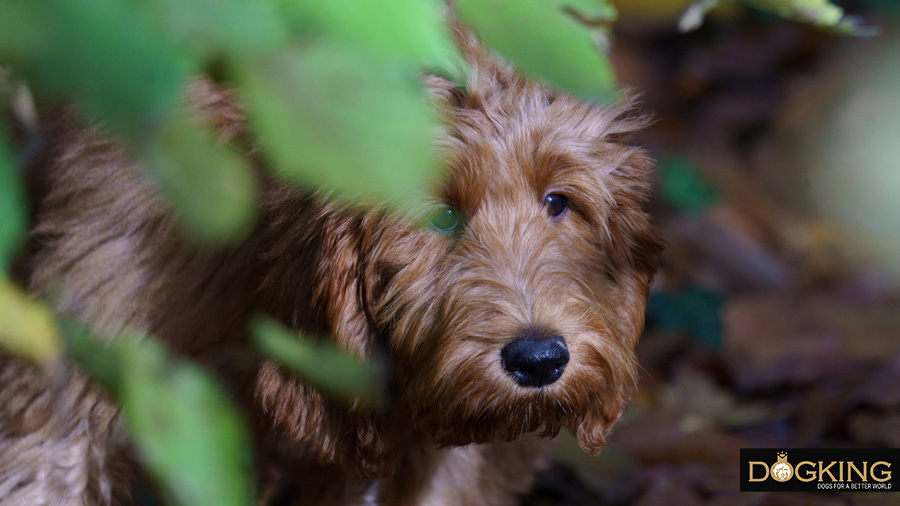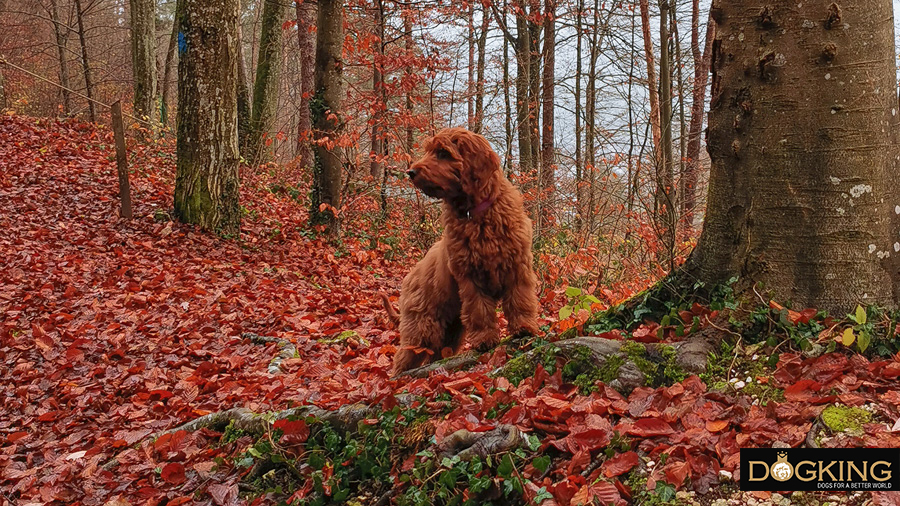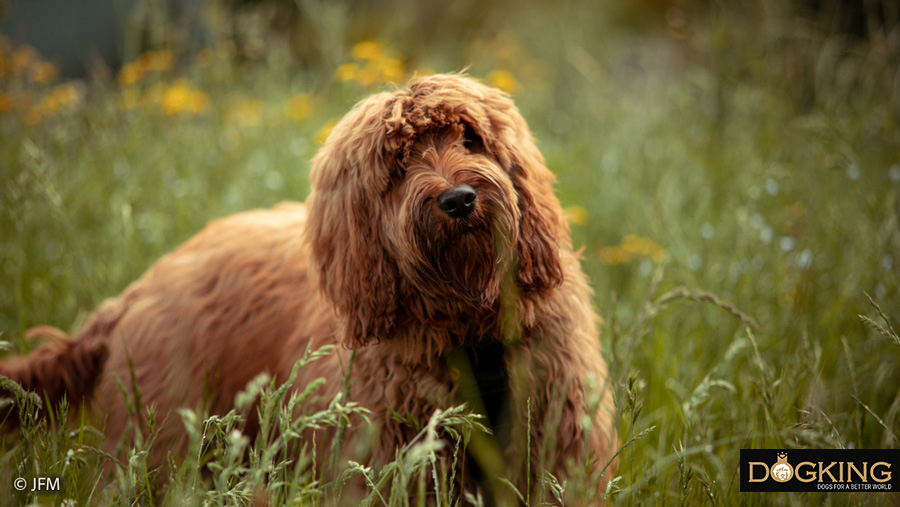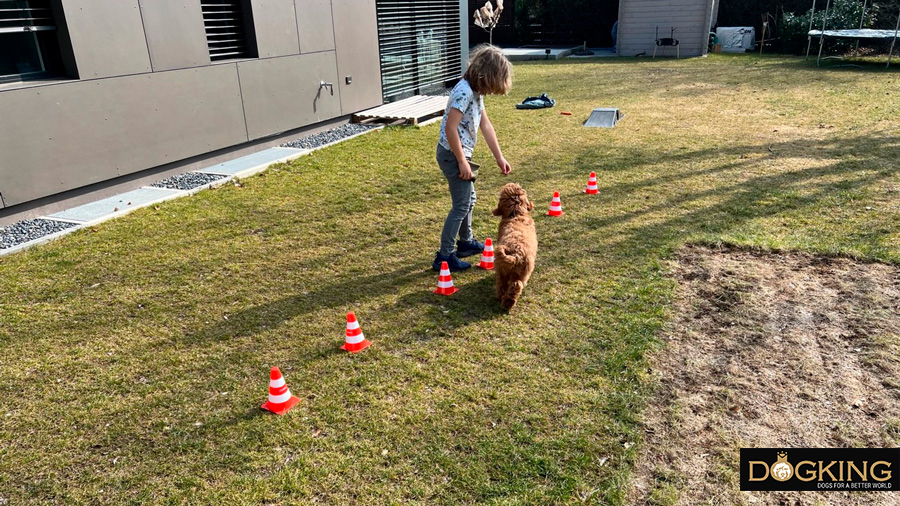Was Sie tun müssen, wenn Ihr Hund eines Tages verloren geht
Wir erklären Ihnen Schritt für Schritt, wie Sie Ihren entlaufenen Hund wiederfinden und wie Sie verhindern können, dass er wegläuft

EINE UNGLÜCKLICHE ERFAHRUNG
Ungefähre Lesedauer: 9 minuten
Nur wenn man sein Leben mit einem Welpen teilt, kann man den Kummer verstehen, den man empfindet, wenn er bei einem Spaziergang für einige Momente verloren geht. Aber wenn die Situation eskaliert und Ihr Hund definitiv verloren geht und Sie ihn nicht mehr finden können, empfinden Sie echte Panik.
Obwohl wir alle schon Geschichten von Hunden gehört haben, die nach Tagen oder sogar Monaten wieder nach Hause zurückkehren, und es stimmt, dass sie einen hervorragenden Geruchssinn und eine hohe Intelligenz besitzen, können wir nicht riskieren, dass unsere Haustiere den Weg zurück zu Ihrem ZuHause finden. Ganz zu schweigen von den Gefahren, denen sie dort draußen ausgesetzt sein könnten: Parasitenbefall, Verkehrsunfälle, Misshandlung, Kämpfe mit anderen Tieren, Kälte... Wir können die Lösung dieses Problems nicht dem Zufall überlassen.

Inhaltsübersicht
Warum laufen Hunde weg?
Bevor wir uns mit den Maßnahmen befassen, die zu ergreifen sind, wenn unser geliebter pelziger Freund verloren geht, müssen wir die Beweggründe verstehen, warum ein Hund von uns weglaufen könnte.
Bevor wir uns mit den Maßnahmen befassen, die zu ergreifen sind, wenn unser geliebter pelziger Freund verloren geht, müssen wir die Beweggründe verstehen, warum ein Hund von uns weglaufen könnte.
Wenn wir mit unserem Hund auf der Straße spazieren gehen, gibt es tausende Reize, die sie ablenken können, und wenn wir nicht die richtigen Vorsichtsmaßnahmen ergreifen, kann es passieren, dass das Tier verloren geht. Bei unkastrierten Hunden können beispielsweise läufige Hündinnen ihre Aufmerksamkeit erregen, oder Katzen, Vögel, spielende Kinder, herumhüpfende Bälle, verlockende Gerüche, die von der anderen Straßenseite kommen... Es ist normal, dass unsere Hunde es lieben, auf der Straße zu sein, vor allem, wenn ihr Charakter, wie gesagt, eher extrovertiert ist. Wenn wir es jedoch mit Hunden zu tun haben, die nicht richtig sozialisiert oder erzogen wurden, besteht die Gefahr, dass diese Reize dazu führen, dass sie sich von uns entfernen.

Was mache ich, wenn mein Hund verloren geht?
Ohne Zweifel ist der Verlust Ihres Hundes eine Situation, die Sie überfordern kann. Ganz wichtig in diesen schwierigen Momenten ist jedoch, nicht die Ruhe zu verlieren und Maßnahmen zu ergreifen, um Ihren treuen Freund so schnell wie möglich wiederzufinden.
DOGKING gibt Ihnen einige Ratschläge, was zu tun ist, wenn Ihr Hund eines Tages verloren geht und wie Sie dieses verzweifelte Problem vermeiden können.
- Zunächst einmal ist es wichtig, dass Ihr Hund mit einem Mikrochip gekennzeichnet und bei der Veterinärbehörde unserer Gemeinde registriert wird. Auf diese Art wird es viel einfacher sein, ihn zu finden, wenn er verloren geht.
- Zunächst einmal ist es wichtig, dass Ihr Hund mit einem Mikrochip gekennzeichnet und bei der Veterinärbehörde unserer Gemeinde registriert wird. Auf diese Art wird es viel einfacher sein, ihn zu finden, wenn er verloren geht.
- Wenn Ihr Hund einen Mikrochip hat, gehen Sie zu den nächstgelegenen Tierheimen und hinterlassen Sie Ihre Kontaktdaten, damit man Sie kontaktieren kann, falls jemand Ihren Hund findet und dorthin bringt. Auf diese Weise sind Sie der Situation einen Schritt voraus und es wird noch einfacher sein, Ihren Hund zu finden.
- Verbreiten Sie die Nachricht. Es mag albern klingen, aber je mehr Menschen wissen, dass Sie Ihren Hund verloren haben, desto mehr Menschen können bei der Suche helfen. Heutzutage sind die sozialen Netzwerke ein großartiger Lautsprecher, mit dem wir viele Menschen erreichen können. Benutzen Sie sie zu Ihrem Vorteil.
- Gestalten und drucken Sie Faltblätter mit aktuellen Fotos Ihres Tieres in guter Auflösung, auf denen Sie seine körperlichen Merkmale, auf welchen Namen er hört oder andere Informationen, die Ihrer Meinung nach für die Suche nach Ihrem entlaufenen Hund nützlich sein könnten, klar erläutert werden.
- Wenn Sie den Verdacht haben, dass Ihr Hund gestohlen wurde, zögern Sie nicht, eine Anzeige bei der örtlichen oder nationalen Polizei oder der Zivilgarde zu erstatten.
- Besuchen Sie Tierkliniken in der Nähe, wo Ihr Hund verloren gegangen ist, falls jemand den Hund gefunden hat und ihn dorthin bringen will. Denken Sie daran, dass Sie den Suchradius erweitern sollten, wenn Sie in der Nähe Ihres Hauses nicht fündig werden, denn Hunde können sich sehr weit von ihrem Zuhause entfernen, wenn sie sich verlaufen haben.
Wie kann ich verhindern, dass mein Hund wegläuft?
- Eine gute Sozialisierung in der ersten Phase des Lebens Ihres Hundes ist aus vielen Gründen wichtig. Einer davon ist, ihn zu einem ruhigen Umgang mit anderen Menschen, Tieren und Reizen zu erziehen. Auf diese Weise wird er als erwachsener Hund bei seinen Spaziergängen im Freien nicht überreagieren und ist in jeder Situation sicherer.
- Training ist unverzichtbar, um einen erzogenen Hund zu bekommen, der auf Ihre Signale hört. Bei DOGKING arbeiten wir an der Ausbildung unserer Australian Cobberdogs vom Welpenalter an und passen den Prozess an jede Lebensphase des Tieres an, beginnend mit einer guten Sozialisierung, die uns hilft, die Grundlagen für die zukünftige Ausbildung zu schaffen. Auf diese Weise wird der Hund, wenn er richtig erzogen wurde, immer auf Ihren Ruf hören, auch wenn er einen tollen Reiz vor sich hat.
- Benutzen Sie immer die Leine, wenn Sie unsicher sind, ob Sie Ihren Hund loslassen können. Idealfall wäre, wenn Ihr Hund gut sozialisiert ist und auf Ihren Ruf gehorcht, auch wenn er mit den verlockendsten Reizen konfrontiert wird. Wenn dies jedoch nicht möglich ist und Sie Ihr Bestes tun, um das Problem zu lösen, verwenden Sie die Leine beim Spazierengehen oder in Bereichen, die Ihr Hund erkunden kann, tauschen Sie sie durch eine längere Leine aus, damit er Spaß haben kann und Sie beruhigt sind, dass Sie ihn nicht verlieren.
- Die Kastration Ihres Hundes ist nicht nur eine gute Möglichkeit, der Überpopulation von Hunden, dem Aussetzen von Hunden und anderen damit verbundenen Problemen vorzubeugen, sondern kann auch dazu beitragen, dass Ihr Hund nicht verloren geht. In vielen Fällen handelt es sich bei einem entlaufenen Hund um einen Hund, der einer läufigen Hündin hinterhergelaufen ist. Indem wir den übermäßigen sexuellen Appetit beseitigen, eliminieren wir das Risiko, dass dies geschieht.
- Das Mikrochippen Ihres Hundes ist Pflicht. Sie können auch einen Anhänger mit Ihren Kontaktdaten am Halsband anbringen. Diese zweite Option ist sehr praktisch und kann im Falle eines Verlustes schneller sein.
- Halsband mit GPS. Eine weitere Möglichkeit, wenn es sich um einen sehr unruhigen Hund handelt, der nicht richtig sozialisiert wurde, ist die Anbringung eines Halsbandes mit einem GPS-Gerät, mit dem wir jederzeit wissen, wo er ist. Es ist jedoch wichtig, dass das Halsband für das Tier angenehm bleibt.
- Zuletzt möchten wir Sie daran erinnern, wie wichtig es ist, zu Hause ein positives und anregendes Umfeld für Ihren Hund zu schaffen. Fühlt sich Ihr Tier wohl, amüsiert und vergnügt, wird es nicht so "hungrig" nach Emotionen sein und weniger wahrscheinlich weglaufen, um etwas zu jagen, das seine Aufmerksamkeit erregt. Sorgen Sie dafür, dass Ihr Hund nach seinem Alter und seinen Charaktereigenschaften angepasste, ständige Auslaufmöglichkeit hat, sowie Spielzeug und andere Reize, die sein Leben spannender machen, nicht mangeln.
